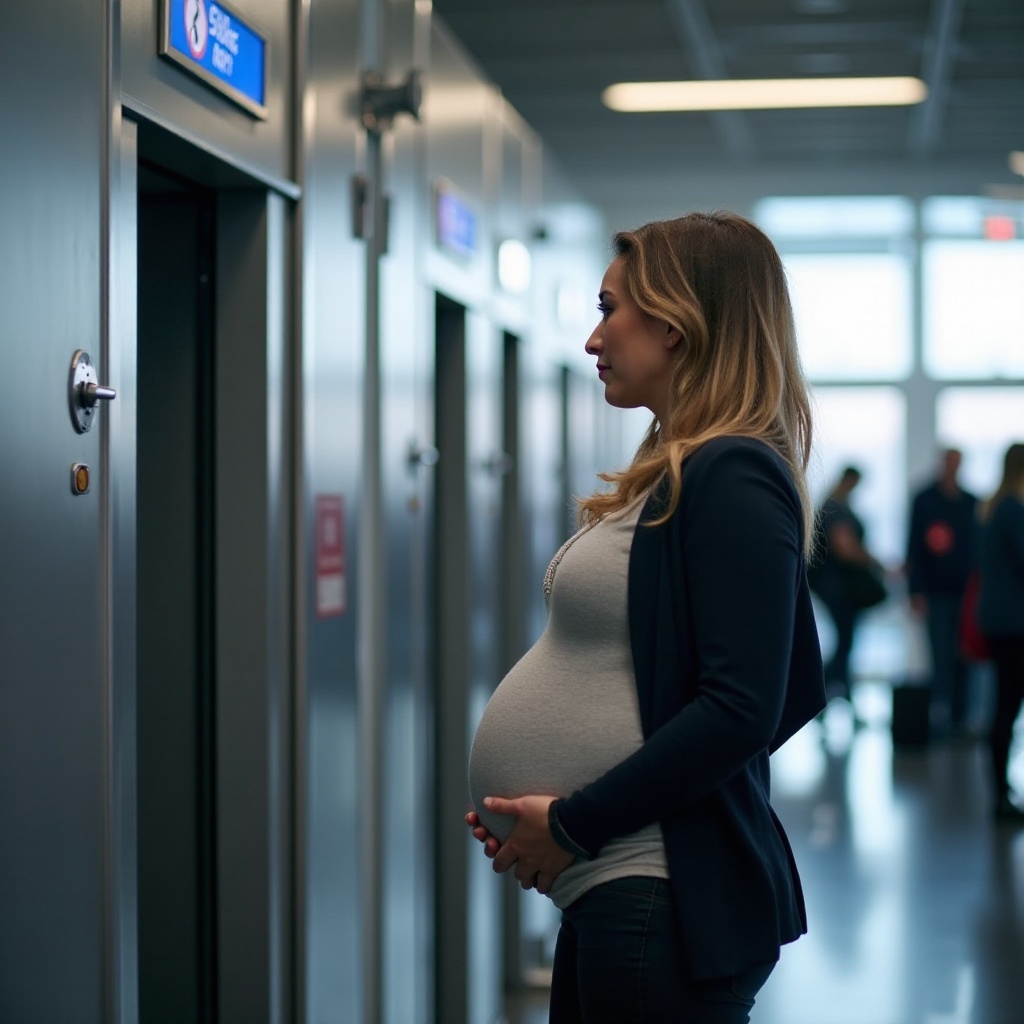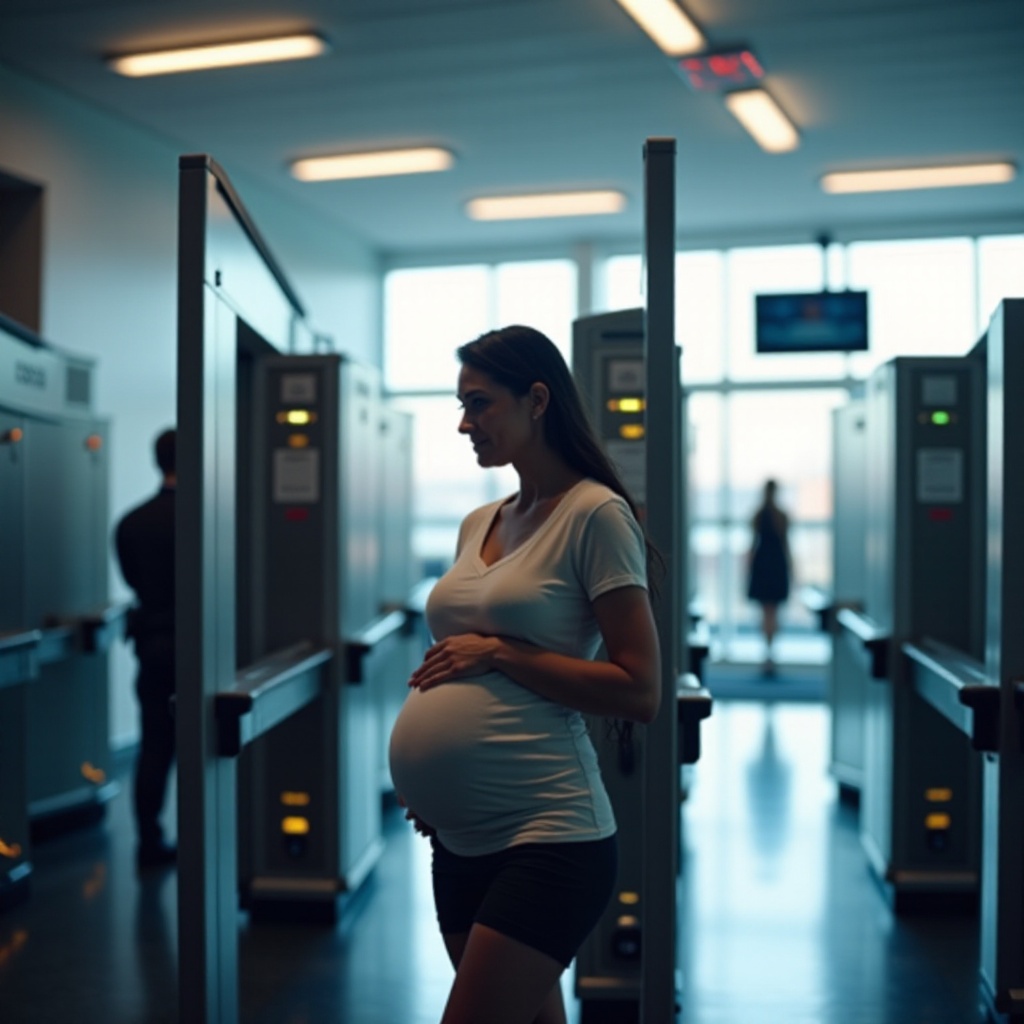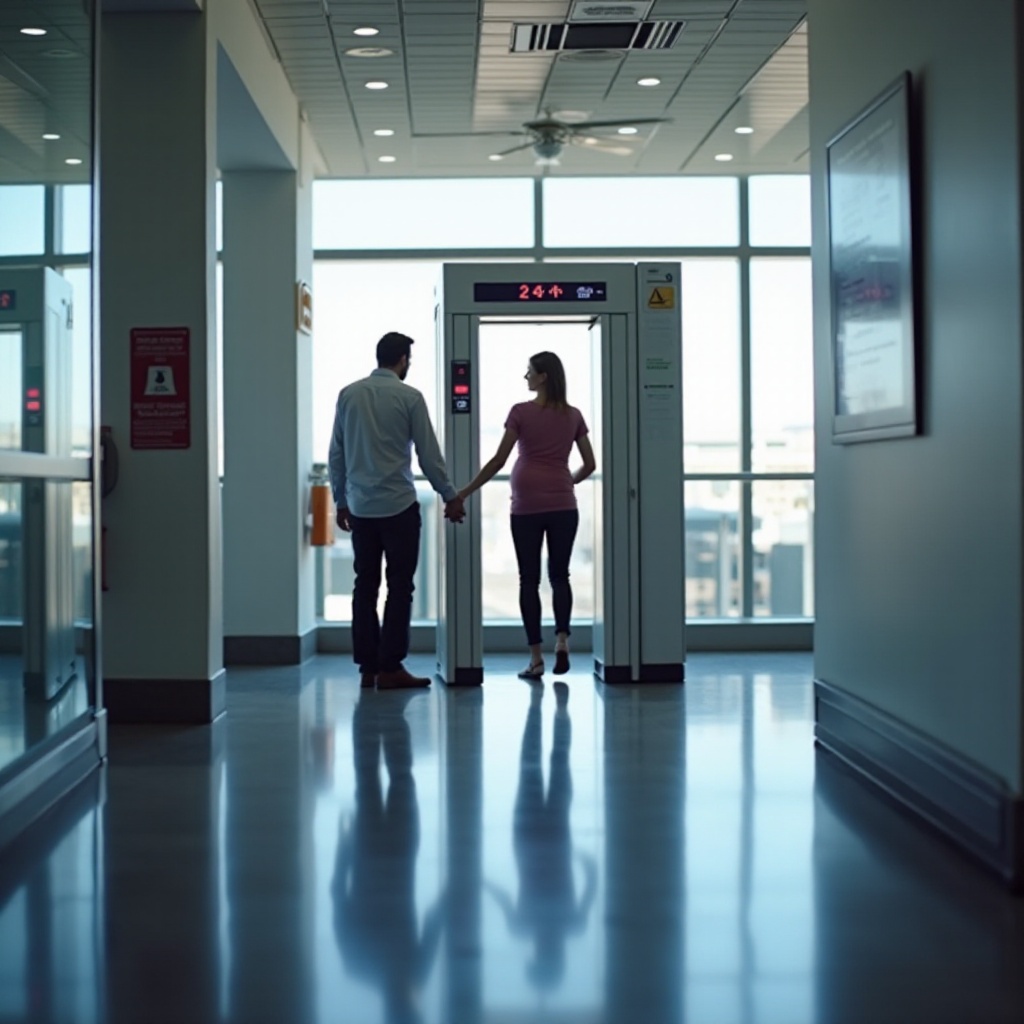Introduction
When you’re pregnant, air travel presents new considerations, one of which is airport security. Safety becomes even more paramount, and questions about TSA scanners arise. Are these scanners safe for pregnant travelers? This blog provides crucial information about TSA scanners and addresses concerns related to pregnancy.

Understanding TSA Scanners
TSA scanners are essential for maintaining airport security. They detect prohibited items carried by passengers, ensuring safe air travel. The two primary types of scanners in use are millimeter wave scanners and backscatter X-ray scanners.
It’s natural to question the safety of these scanners, especially during pregnancy. Understanding their function and the safeguards in place can provide peace of mind to expectant mothers as they travel.
Types of TSA Scanners Used at Airports
Airports typically use two types of TSA scanners: millimeter wave scanners and backscatter X-ray scanners.
- Millimeter Wave Scanners:
- These scanners utilize non-ionizing radiofrequency waves.
- Radiofrequency waves are the same type used in mobile phones.
-
They produce a detailed image of a person’s body to detect concealed objects.
-
Backscatter X-ray Scanners:
- These scanners employ low-level X-rays.
- Unlike medical X-rays, the radiation levels are much lower.
- They create images based on the reflection of X-rays from the surface of the body.
Both types serve to enhance security while minimizing health risks to travelers. Understanding how they work can help alleviate concerns about their use, especially for pregnant women.

Radiation Exposure and Safety Standards
Concerns about radiation exposure are valid, particularly for expectant mothers. Fortunately, both millimeter wave scanners and backscatter X-ray scanners operate within established safety limits.
- Millimeter Wave Scanners:
- Use non-ionizing radiation, which does not carry enough energy to ionize atoms or remove tightly bound electrons.
-
Considered safe because the energy level is too low to damage biological tissue.
-
Backscatter X-ray Scanners:
- Use ionizing radiation, but at very low levels.
- Radiation exposure from this scanner is extremely minimal, approximately equivalent to what one would receive in a few minutes of regular airplane flight.
- Regulatory bodies like the U.S. Food and Drug Administration (FDA) and the Health Physics Society have determined these devices are safe for all travelers, including pregnant women.
In summary, both scanner types comply with strict safety regulations, ensuring minimal radiation exposure well within safe limits for pregnant travelers.

Health and Safety Concerns for Pregnant Travelers
Even with these safety standards in place, pregnant travelers often have additional health concerns. Here are some considerations:
- Radiation Sensitivity: Though scanners emit low radiation, some pregnant women might still worry about fetal exposure.
- Stress Levels: The mental stress of worrying about security procedures can be burdensome.
- Physical Discomfort: Navigating airports and undergoing screenings can be physically challenging during pregnancy.
The TSA provides alternative screening options for pregnant women to address these health concerns, ensuring a smoother and less stressful travel experience.
Alternative Screening Options for Pregnant Women
Pregnant travelers can choose alternative screening methods if they have concerns about TSA scanners. The TSA offers:
- Pat-Downs: Travelers can opt for a physical inspection by a security officer. This may be more time-consuming but eliminates scanner-related concerns.
- Screening Assistance: Pregnant women can request additional assistance during the screening process to reduce stress and physical strain.
By opting out of scanner screenings and choosing these alternatives, expectant mothers can travel with greater peace of mind regarding their health and safety.
Conclusion
The safety of TSA scanners for pregnant travelers often sparks concern, but it is reassuring to know that these scanners operate under strict safety guidelines. Millimeter wave and backscatter X-ray scanners have been deemed safe by regulatory authorities, with radiation exposure levels kept to an absolute minimum.
For those still uneasy, alternative screening options, such as pat-downs, are available. Ensuring a stress-free journey is crucial for pregnant travelers, and understanding these options and the technology involved can help make travel more comfortable and safe.
Frequently Asked Questions
Can I opt out of the TSA scanner if I’m pregnant?
Yes, if you are pregnant, you can opt for a physical pat-down instead of going through the TSA scanner. Inform the TSA officer about your condition, and they’ll assist you with the alternative screening process.
How much radiation exposure is safe during pregnancy?
According to the Health Physics Society and the FDA, exposure levels from airport security scanners are well below the safe limit for all travelers, including pregnant women. Millimeter wave scanners emit non-ionizing radiation, which is safe, and backscatter X-ray scanners use minimal radiation, far less than a single chest X-ray.
Are there specific guidelines provided by TSA for pregnant travelers?
The TSA advises pregnant travelers concerned about scanner radiation to opt for alternative screening methods such as a physical pat-down. They also offer assistance through the screening process to ensure comfort and safety.

